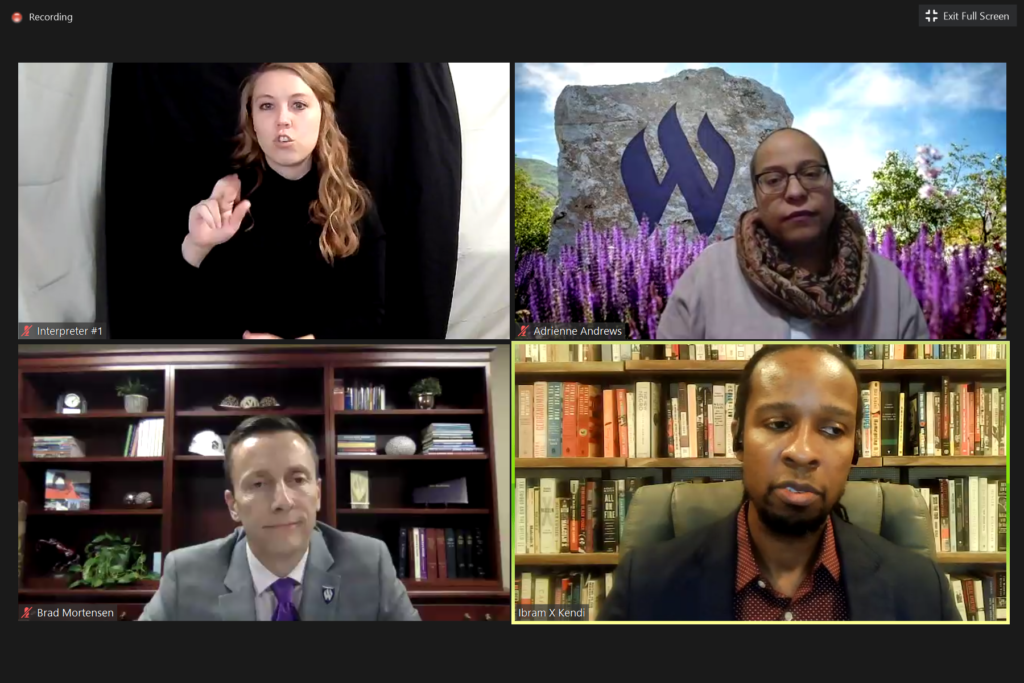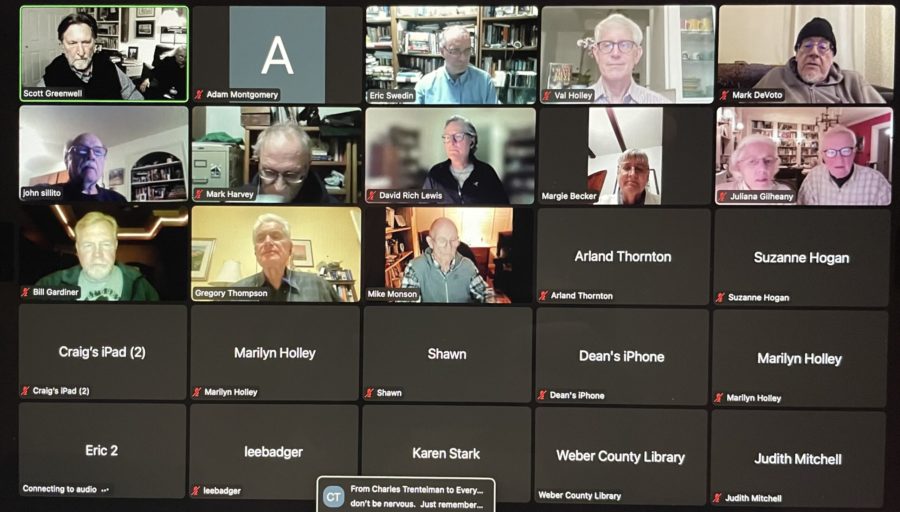Weber State University hosted a Zoom webinar with author and antiracist activist Ibram X. Kendi and President Brad Mortensen on Jan. 13. The two discussed how to be antiracist and celebrate Martin Luther King, Jr’s legacy. About a thousand people were in attendance.

Kendi is a professor at Boston University, founder of the Boston University Center for Antiracist Research and one of Time magazine’s Top 100 Most Influential People of 2020. He is also the author of many books regarding antiracism, including his bestseller “How To Be an Antiracist.”
Kendi describes “How To Be an Antiracist” as a book that recounts his upbringing and the times that he has experienced racism in his life. In the book he concludes that black or white people do not cause racial power, rather; it’s the result of racist policies and racism in general.
The keynote began with Mortensen mentioning Kendi’s article in The Atlantic, titled “Denial Is the Heartbeat of America.” The article discussed the Capitol riots that happened on Jan. 6 and the statements politicians made saying it’s not representative of what America is.
“I wanted to make the case, both using distant and recent history, that it’s precisely who we are, that what we saw at the U.S. Capitol is part of this country,” Kendi said.
An analogy often brought up during the event was the comparison between racism and cancer, as Kendi and his family members have struggled with cancer.
Racism, much like cancer, must be diagnosed and treated. Cancer cannot go away by not talking about it, and neither can racism, Kendi claims.
A doctor diagnosing their patient with cancer is doing so to help the patient, not attack them. Kendi believes diagnosing racism should be seen in the same light.
“The person who diagnoses the nation as being racist, diagnosing the person as being racist, what if we saw them in that vein? As actually the folks who are trying to save this nation, who are trying to urge people to get treatment, so they stop hurting others, even themselves,” Kendi said.
Mortensen brought up the topic of diversity in Utah, specifically regarding the educational achievement gaps seen with minority groups. He asked Kendi for advice on how to make positive changes to reduce said gaps.
Kendi recommended taking into consideration why the gaps exist and identifying the problem. He also advised policymakers not to blame minority youth or the people educating them, but rather the policymakers themselves.
For someone who may be unsure about where to start with participation in antiracist actions, it is easiest to look at one’s passions. Kendi explained there is a chance injustices already exist in the area of that passion that one can fight to correct. There are also organizations one can join to create an antiracist environment.
On Jan. 18, it was announced that Kendi would be partnering with Netflix to adapt three of his books into television programs.
The full recorded webinar will be accessible until Feb. 2 on WSU’s website. ASL interpretation is available.


















